
This isn’t the case. Instead, the mechanical emphasis is on crafting and inventory management, the former of which I find fiddlier than an attention-deficit violinist, while the latter is painfully monotonous. Crafting involves using elements collected from the minerals, flora and fauna of worlds to build new ship and equipment upgrades. The range of elements available is impressive, but actually finding the right elements to install upgrades can prove arduous. Also, and I hope other game developers figure this out soon, crafting items that you never actually see other than as an icon on a menu is about as much fun as watching someone mime a dream they once had to you.
Coupled with the fact that space in your inventory is, ironically, extremely limited, the result is that far too much time is spent playing elemental Tetris, shifting items from your exosuit to your ship so you can perform specific interactions, or deleting the three slots’ worth of carbon you inadvertently collected on your travels so you can pick up yet another Fascination Bead. Another issue is that choosing which multi-tool or ship to use is almost entirely based on how many inventory slots it has. When you’re getting excited about inventory slots in a game this full of wonder, something isn’t right.
Other aspects of the game have more potential, but need better grounding to function properly. Alongside the abundant extraterrestrial wildlife, there are three alien civilisations to interact with. All of them speak their own language which you can learn word-by-word in several different ways. Encountering one of these aliens often leads to a little narrative aside where the alien will request your aid in some way, while you have to decipher what exactly it is they want. These are fun little interludes, and they do a great job of making the aliens feel truly otherworldly. But they’re also formatted to death, and the instantly-resolvable nature of the interactions lessens their impact.
The case is the same with the ship combat, which is fun, spectacular, and surprisingly challenging. Enemy ships are aggressive and tend to attack in numbers, their laser fire eating through your shields like a bear through a binbag. To survive, you need to be nimble and accurate, using asteroids and larger ships as cover to give yourself a chance to recharge your shields and get behind the enemy. The combat lacks the heft and tactical nuance of Elite, but it’s still snappy and sparky and enjoyable. Unfortunately, there’s no context to any of it. We don’t really know who the enemy is, whether they’re simple pirates or members of a specific faction. The same goes for all the heavy cruisers pondering through space. Who are they? Why are they here? Where are they going?
And here we come to the root problem of No Man’s Sky – it doesn’t have the capacity to tell emergent stories in the way that it should. Each planet offers a breathtaking new environment to explore, and then a jumble of stuff to do that doesn’t really fit together. As a game it pushes out in multiple directions, searching for meaning amidst all the random numbers, and never quite finds it.
In short, it’s a big game with big problems. And yet, despite all these flaws, I keep on coming back to it. The allure of exploring Just One More Planet is simply too powerful. For all the problems - the tedious inventory faffing, the wrong-headed emphasis on crafting, the undercooked combat and dialogue systems - No Man’s Sky offers an experience that is unlike anything you’ve played before. Being able to stand on a planet, look up at its moon, and then go there, before looking back and seeing that same planet engulf the entire sky, is simply astonishing.
Ultimately, No Man’s Sky isn’t a game about being told a story, buying a better ship or crafting a more powerful weapon. It’s about fulfilling that desire to explore in an age when the limits of human exploration have, for now, been reached. It’s about momentum, about keeping on going and never looking back, about the tantalising prospect of seeing what lies beyond the next event horizon.
Coupled with the fact that space in your inventory is, ironically, extremely limited, the result is that far too much time is spent playing elemental Tetris, shifting items from your exosuit to your ship so you can perform specific interactions, or deleting the three slots’ worth of carbon you inadvertently collected on your travels so you can pick up yet another Fascination Bead. Another issue is that choosing which multi-tool or ship to use is almost entirely based on how many inventory slots it has. When you’re getting excited about inventory slots in a game this full of wonder, something isn’t right.
Other aspects of the game have more potential, but need better grounding to function properly. Alongside the abundant extraterrestrial wildlife, there are three alien civilisations to interact with. All of them speak their own language which you can learn word-by-word in several different ways. Encountering one of these aliens often leads to a little narrative aside where the alien will request your aid in some way, while you have to decipher what exactly it is they want. These are fun little interludes, and they do a great job of making the aliens feel truly otherworldly. But they’re also formatted to death, and the instantly-resolvable nature of the interactions lessens their impact.
The case is the same with the ship combat, which is fun, spectacular, and surprisingly challenging. Enemy ships are aggressive and tend to attack in numbers, their laser fire eating through your shields like a bear through a binbag. To survive, you need to be nimble and accurate, using asteroids and larger ships as cover to give yourself a chance to recharge your shields and get behind the enemy. The combat lacks the heft and tactical nuance of Elite, but it’s still snappy and sparky and enjoyable. Unfortunately, there’s no context to any of it. We don’t really know who the enemy is, whether they’re simple pirates or members of a specific faction. The same goes for all the heavy cruisers pondering through space. Who are they? Why are they here? Where are they going?
And here we come to the root problem of No Man’s Sky – it doesn’t have the capacity to tell emergent stories in the way that it should. Each planet offers a breathtaking new environment to explore, and then a jumble of stuff to do that doesn’t really fit together. As a game it pushes out in multiple directions, searching for meaning amidst all the random numbers, and never quite finds it.
In short, it’s a big game with big problems. And yet, despite all these flaws, I keep on coming back to it. The allure of exploring Just One More Planet is simply too powerful. For all the problems - the tedious inventory faffing, the wrong-headed emphasis on crafting, the undercooked combat and dialogue systems - No Man’s Sky offers an experience that is unlike anything you’ve played before. Being able to stand on a planet, look up at its moon, and then go there, before looking back and seeing that same planet engulf the entire sky, is simply astonishing.
Ultimately, No Man’s Sky isn’t a game about being told a story, buying a better ship or crafting a more powerful weapon. It’s about fulfilling that desire to explore in an age when the limits of human exploration have, for now, been reached. It’s about momentum, about keeping on going and never looking back, about the tantalising prospect of seeing what lies beyond the next event horizon.


MSI MPG Velox 100R Chassis Review
October 14 2021 | 15:04

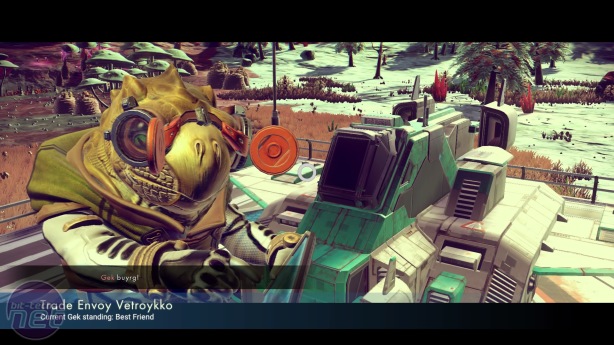
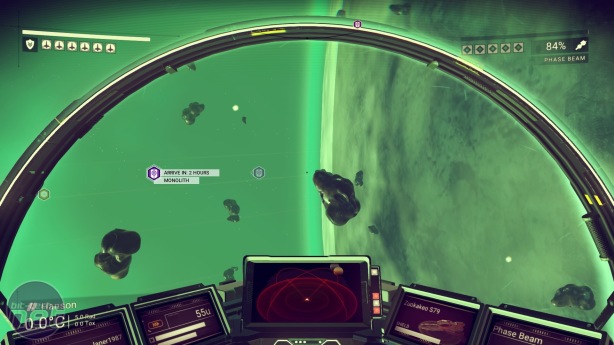
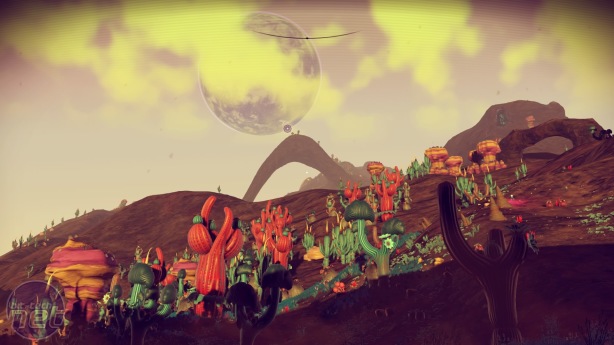
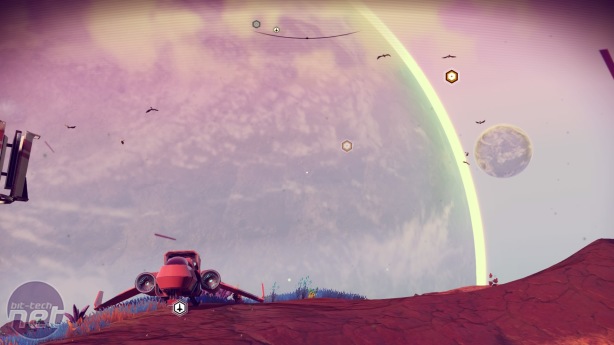

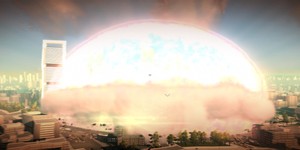
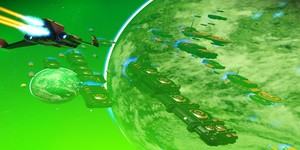





Want to comment? Please log in.